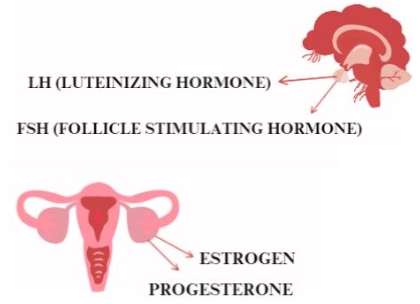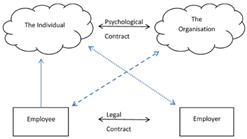Chinese students’ willingness to study abroad: The personal and familial influencing factors
Abstract
Background: Studying abroad is no longer a new phenomenon. The popularity of Chinese students studying abroad is well known and the enthusiasm for studying abroad among students has been consistently strong for many years, especially with the continuous development of the Chinese economy. Aims: This paper will examine personal and family factors which influence the willingness to study abroad among Chinese university students. The application of these influencing factors can potentially have an impact in the formulation of government-related policies, the establishment and development of study abroad agencies, and the decision process among students when choosing to study abroad. Methods: The current study utilized a self-report approach to examine the potential impact of several personal and family factors on the willingness to study abroad. Results: Utilizing multivariate analysis and statistical analysis modeling, it was found that willingness to study abroad is greatest among female students with moderate to high grades, who are from urban areas and non-agricultural households, with fathers in high status occupations, mothers with higher levels of education, and higher family income. These factors embody the intergenerational transmission of benefits associated with family capital.
References
Chai, L., Wei, J., Han, Y., Zhang, J., & Hennessy, D.A. (2020). Political elite selection in contemporary Chinese higher education. China: An International Journal, 18, 143-160.
Dreher, A., & Poutvaara, P. (2005). Student flows and migration: An empirical analysis. IZA Discussion Paper No. 1612, CESifo Working Paper Series No. 1490, Available online: https://ssrn.com/abstract=731765 or http://dx.doi.org/10.2139/ssrn.731765
Fakunle, O. (2021). Developing a framework for international students’ rationales for studying abroad, beyond economic factors. Policy Futures in Education, 19(6), 671-690.
Hackney, K., Boggs, D., & Borozan, A. (2012). An empirical study of student willingness to study abroad. Journal of Teaching in International Business, 23(2), 123-144.
Li, M., & Bray, M. (2007). Cross-border flows of students for higher education: Push–pull factors and motivations of mainland Chinese students in Hong Kong and Macau. Higher Education, 53(6), 791-818.
Liu, X., Elston, F., & Zhou, P. (2013). Comparing research on Chinese students study abroad decision-making: China-based versus overseas-based perspectives. World Review of Business Research, 4, 124-135.
Lu, G., Mei, T., & Wanhong, L. (2014). An analysis of the factors affecting college students' willingness to study abroad. Fudan Education Forum, 5, 36-44.
Mazzarol, T., & Soutar, G. N. (2002). The push-pull factors influencing international student selection of education destination. International Journal of Educational Management, 16(2), 82-90.
Netz, N., Orr, D., Gwosc, C., & Huß, B. (2012). Steeplechase - What deters students from studying abroad? A discussion paper. Available online: https://www.researchgate.net/publication/264787670_Steeplechase_-_What_deters_students_from_studying_abroad
Onsman, A. (2013). International students at Chinese joint venture universities: Factors influencing decisions to enrol. Australian Universities Review, 55, 15-23.
Pan, K., & Cheng. J. (2015). An Analysis of the Factors Influencing the Choice of University Students' Studying Abroad. China Higher Education Research(3), 15-20.
Salisbury, M. H., Umbach, P. D., Paulsen, M. B., & Pascarella, E. T. (2009). Going global: Understanding the choice process of the intent to study abroad. Research in Higher Education, 50(2), 119-143.
Wang, Z., Qiang, Z., & Feiwei, C. (2015). A Spring River Flowing toward the West——A Survey of Behavior and Intention of University Students Studying Abroad. Human Resources Development(2), 66-67.
Yang, K,, & Fansheng, K. (2012). Investigation and study on high school students' willingness to study abroad at their own costs - Based on sample survey data of 7 cities. Educational Research(10), 59-63.
Yang, Y. (2014). An analysis of university students' decision-making mechanism for studying abroad. Youth Journal(6), 48-52.
Yang, Z,, & Qin, W. (2016). The influence of family endowments and human capital on university students' willingness to study abroad: A case study of undergraduates of Humanities and Social Sciences. Agricultural Education Research(2), 20-23.
Yin, Y., Junshan, Z., & Junjie, L. (2014). Who is more likely to be enrolled in the independent enrollment - Also on establishing a multi-assessment index system for independent enrollment in colleges and universities. Tsinghua University Education Research, 35(6), 41-47.
Yu, W. (2016). An investigation on the intention of studying abroad for contemporary university students. Journal of Chuzhou University, 18(1), 101-104.
Zhong, L. (2016). Family background, academic performance and graduate education opportunities. Society, 36(3), 86-109.
Zhou, Y. (2010). Hypothesis of potential energy conversion in population migration - Reinterpretation of Push-Pull Theory of population migration. Population and Economy(6), 77-83.
Copyright (c) 2024 Jie Zhang, Dwight Hennessy, Yin Yin, Jing Wang

This work is licensed under a Creative Commons Attribution 4.0 International License.









